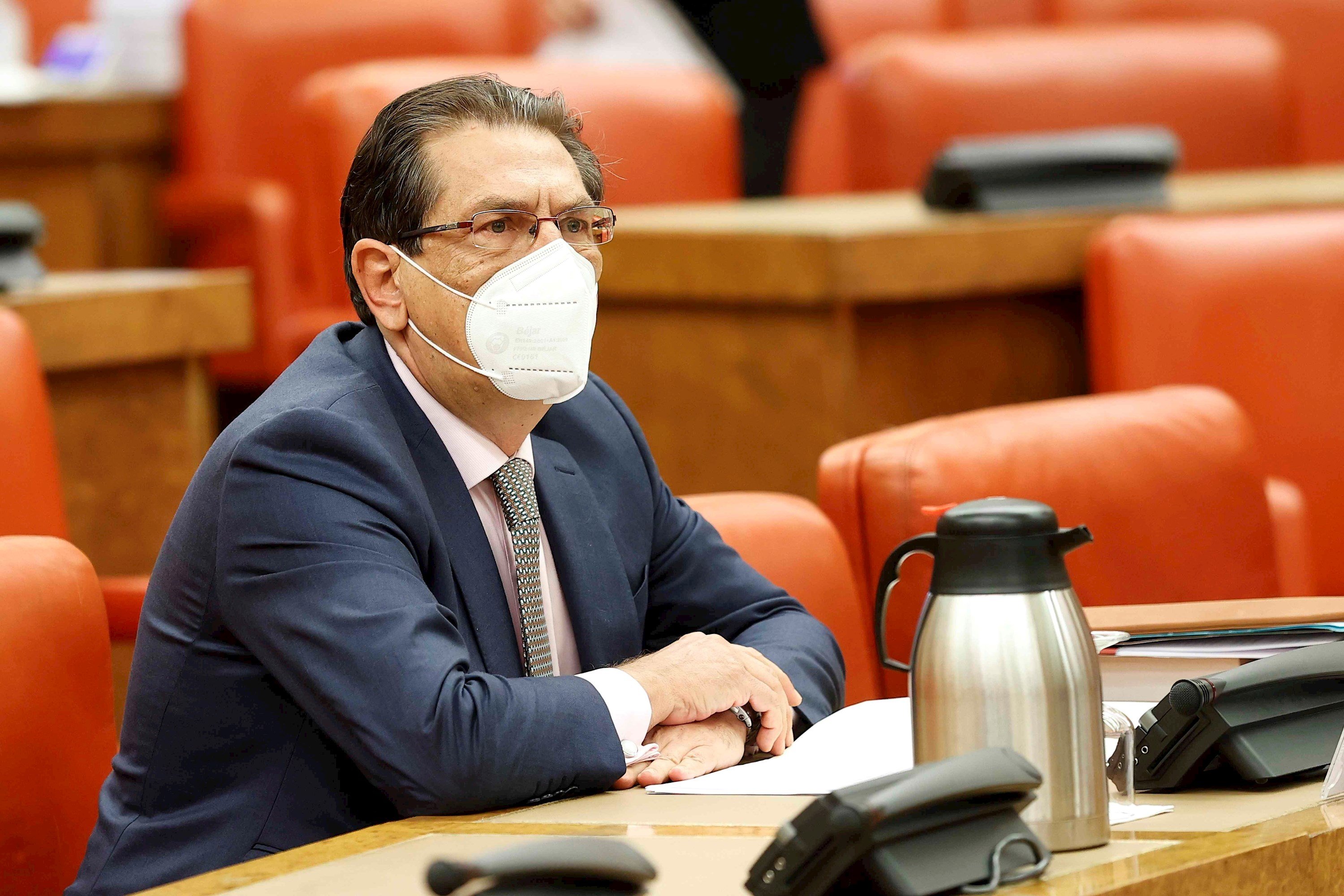The candidates proposed by the Popular Party (PP) in the partially-agreed renewal of the Spanish judiciary have aroused some skepticism, but one of those who is receiving the most scrutiny is Enrique Arnaldo. A number of shadowy aspects in the jurist's past have emerged just as he faces the responsibility of a position on Spain's Constitutional Court. The latest, according to the digital newspaper El Confidencial, is that the PP candidate breached Spain's Law of Universities for years in order to remain on the payroll of two universities, one public and the other private. This would constitute an administrative infraction of a very serious nature, which could lead to the suspension of public employment and pay for between three and six years.
Since 2007, the university law has prohibited an academic in a public-centre teaching role from also teaching in a private centre. This regulation aims to prevent university teachers from public institutions from dedicating part of their day to another university. The regulations approved 14 years ago included a four year margin until they came into force, that is, this limitation was fully in force from 2011 onwards, but it was not observed by Arnaldo.
When the regulations were approved, the Constitutional Court candidate was an active professor at University Juan Carlos I and had also been teaching at the Cardenal Cisneros Centre, a private institution attached to the Complutense University, for more than a decade. Theoretically, in 2011 he should have decided whether to stay in one centre or the other, but he didn’t. Arnaldo remained linked to the two university centres until the 204-2015 academic year.
Not aware of any breach
The digital newspaper contacted Arnaldo seeking an explanation of a situation that could constitute a very serious administrative offence. The jurist limited himself to stating that he was not aware of having breached the law and that he continued to teach at the two centres, the Cardenal Cisneros Centre and University Juan Carlos I, at the request of the centre director and university rector.
If that response already left something to be desired, Arnaldo compounded the doubts by asserting that Article 72.3 of the law, which prohibits the combination of two such jobs, was difficult to interpret. This article states: "The teaching staff of private universities, and private university teaching centres attached to universities, may not be civil servants in the university teaching staff in an active situation and destined to a public university. The same limitation applies to full-time teaching and research staff".
Arnaldo added that the Cardenal Cisneros Centre does not consider that it can be regarded as a private body, as it is a foundation in which the Community of Madrid participates. However, the centre is described on its own website as "a private, non-denominational university centre, attached to the Complutense University of Madrid." A version that does not fit with that of the PP candidate.
Shadows in the past
This is not the only element in Arnaldo's past that has raised the alarms. The most shadowy aspect in his resume was his accusation in the Palma Arena corruption case, centred on the 50-million-euro cost overrun of a sports stadium in Mallorca. The jurist recalled that he was exonerated. But he also appears in the summary of the Lezo case, another corruption case centred on the PP in Madrid. In some audio recordings he was heard saying that he was making "moves" to bring in prosecutors who favoured the former president of Madrid, Ignacio González. Again, he refused to comment, recalling that the case was dropped. Finally, his participation in events of the FAES, the foundation led by former PM José María Aznar, has also appeared. He explained that he was taking part in "plural" debates and that he spoke about them from a "technical and legal" point of view.
However, Arnaldo has already passed the suitability test that the Congress of Deputies carried out on the four nominated candidates to take up places on the renewed Constitutional Court. Despite the harsh criticism he received during his appearance, the jurist ended up receiving the approval of the lower house.
Main image: The jurist and candidate for the Constitutional Court, Enrique Arnaldo, appearing before the Congress of Deputies to demonstrate his suitability for office / Efe

